
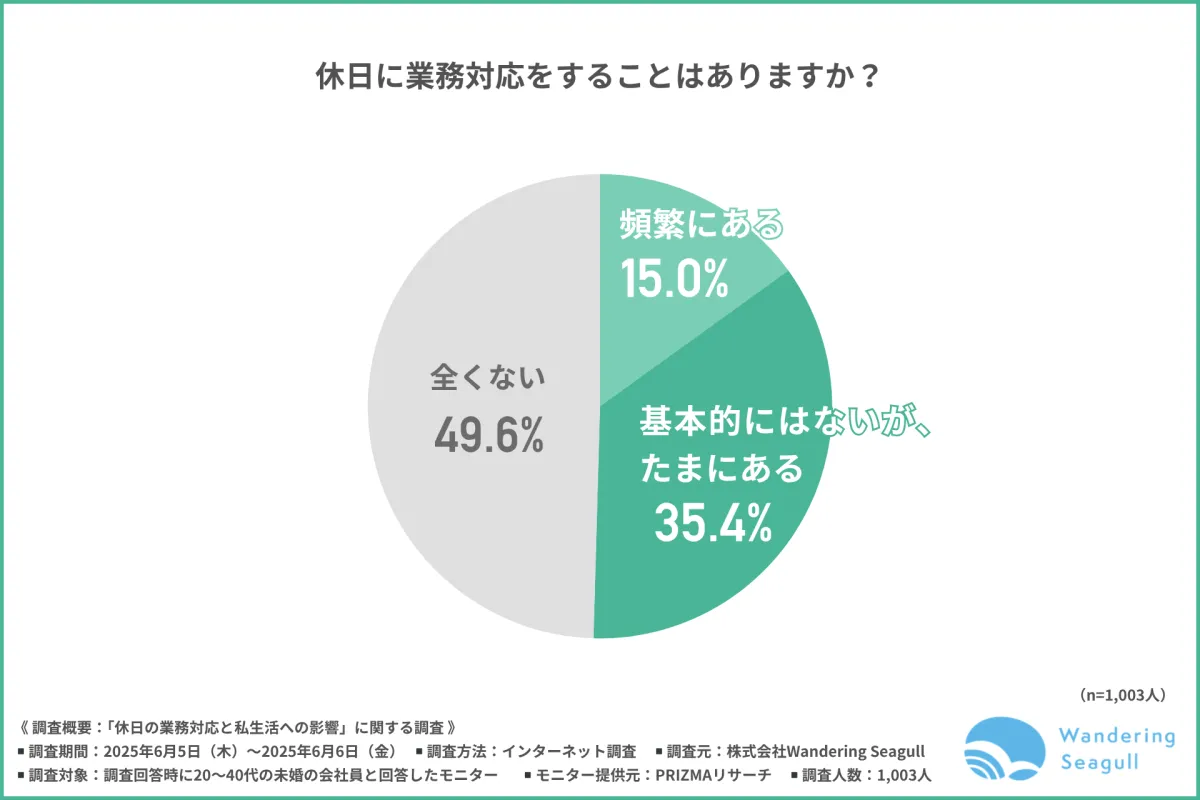
Analyzing the Effects of Weekend Work on Personal Life and Relationships
Overview of Weekend Work and Its Influence on Personal Life
In an evolving work landscape, the boundaries between personal time and professional obligations have become increasingly blurred. Wandering Seagull, a company based in Niigata, Japan, conducted a survey to understand how weekend work influences the personal lives of unmarried employees in their 20s to 40s. The survey, performed between June 5 and June 6, 2025, involved 1,003 participants and sought to reveal the true extent of weekend professional obligations and their ramifications on relationships and personal satisfaction.
Survey Highlights
The findings of the survey uncover a concerning trend: more than half of the respondents engage in work-related activities during weekends. When asked, "Do you work on weekends?", 49.6% indicated they never do, while 50.4% admitted to working in some capacity. The responses revealed a spectrum of engagement:
- - 15.0% frequently work on weekends.
- - 35.4% sometimes work on weekends.
- - 49.6% never work on weekends.
This indicates that weekend work has seeped into the personal time of many, which is alarming considering the importance of downtime for mental health and personal fulfillment.
Frequency of Weekend Work
Delving deeper, the survey sought to identify how often weekend work occurs:
- - 6.3% work two or more times a week.
- - 21.1% work around once a week.
- - 17.8% work two to three times a month.
- - 21.0% work once a month.
- - 33.8% work a few times a year.
Approximately 30% of participants who frequently work on weekends indicate a normalization of this behavior, reflecting a troubling trend where weekend work becomes habitual.
Lack of Clear Workplace Policies
Inquiring about company policies regarding weekend work, results showed:
- - 33.8% of participants said there are clear rules that are enforced.
- - 24.7% stated there are no specific rules.
- - 20.0% indicated there are implicit rules.
Over 40% of participants pointed out a lack of established workplace policies regarding weekend work, suggesting that many companies leave their employees with personal discretion, potentially leading to stress and burnout.
Impact on Personal Satisfaction
Ascertaining how weekend work affects personal time satisfaction revealed even more alarming results. The satisfaction level of participants regarding their personal time varied significantly with the frequency of weekend work. About 70% of those who never work on weekends reported being satisfied with their personal time, while only around 10% of those who sometimes engage in weekend work expressed similar satisfaction.
This suggests that the unpredictability of when work will intrude upon personal time contributes to significant anxiety and dissatisfaction.
Coping Mechanisms
In light of these findings, the survey also explored how individuals try to secure their weekends from work encroachment. Notably, those who frequently handle work on weekends seem to take proactive measures:
- - Scheduling Plans: 37.1% of those who frequently work on weekends prioritize scheduling personal plans to block out time for work.
- - Device Management: 32.5% refrain from using work devices during weekends.
- - Notification Management: 25.8% turn off work communication notifications after hours.
By contrast, individuals who rarely engage in weekend work show less concern for managing their time effectively, with many indicating they do not feel the need for specific strategies to maintain their boundaries.
Emotional Impact on Personal Relationships
The emotional consequences of weekend work extend into personal relationships. The survey assessed how much work impacts dating and marriage aspirations, emphasizing a clear correlation between work frequency on weekends and negative consequences for personal relationships:
- - Of those frequently engaged in weekend work, 74.2% felt it influenced their personal relationships significantly.
- - In contrast, only about 39.5% of those who never worked on weekends felt similarly.
These findings indicate that even casual disruptions can significantly affect one's willingness to engage in social and romantic endeavors, highlighting the toll that excessive work can take on life’s more personal moments.
Overall Job Satisfaction
Interestingly, while weekday work is a common concern for many, satisfaction levels in jobs do not consistently correlate with weekend work frequency. Many employees reported a mix of fulfillment and frustration regardless of whether they engage with work over the weekend, underscoring that job satisfaction is influenced by various factors, not just weekend work policies.
Conclusion: Rethinking Work-Life Balance
Overall, the survey from Wandering Seagull presents a compelling case to rethink how companies and employees treat time away from work. The potential solutions are clear: develop clearer workplace policies regarding weekend obligations and ensure that employees feel empowered to disconnect from work when the weekend arrives. Fostering a healthier work-life balance can lead to improved satisfaction across both personal and professional realms.
Moving Forward
As the modern workforce continues evolving, it is essential for both companies and employees to revisit work-life integration and dedicate time to personal wellness. Wandering Seagull’s findings compel us to consider how weekend work not only impacts productivity but also the holistic health of employees in their personal lives and relationships. Addressing these issues may not only ease workplace tension but allow individuals to lead a more fulfilling life, both personally and professionally.
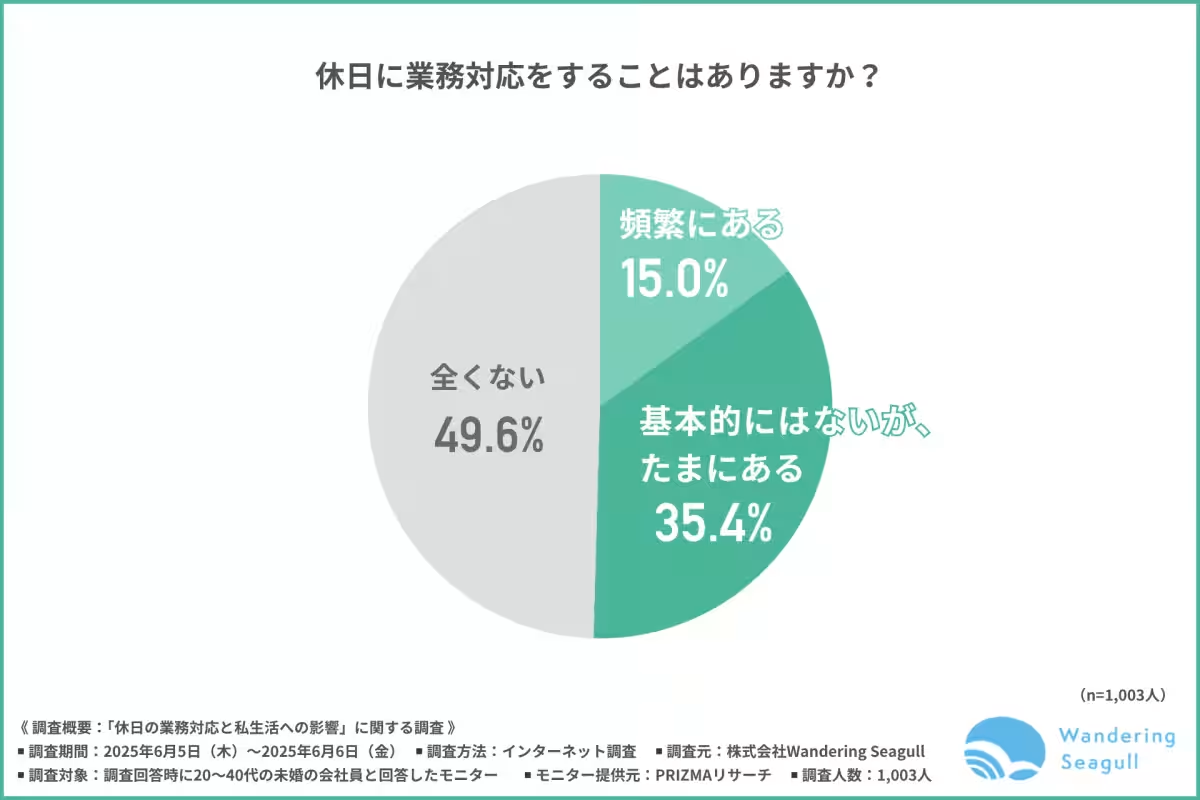
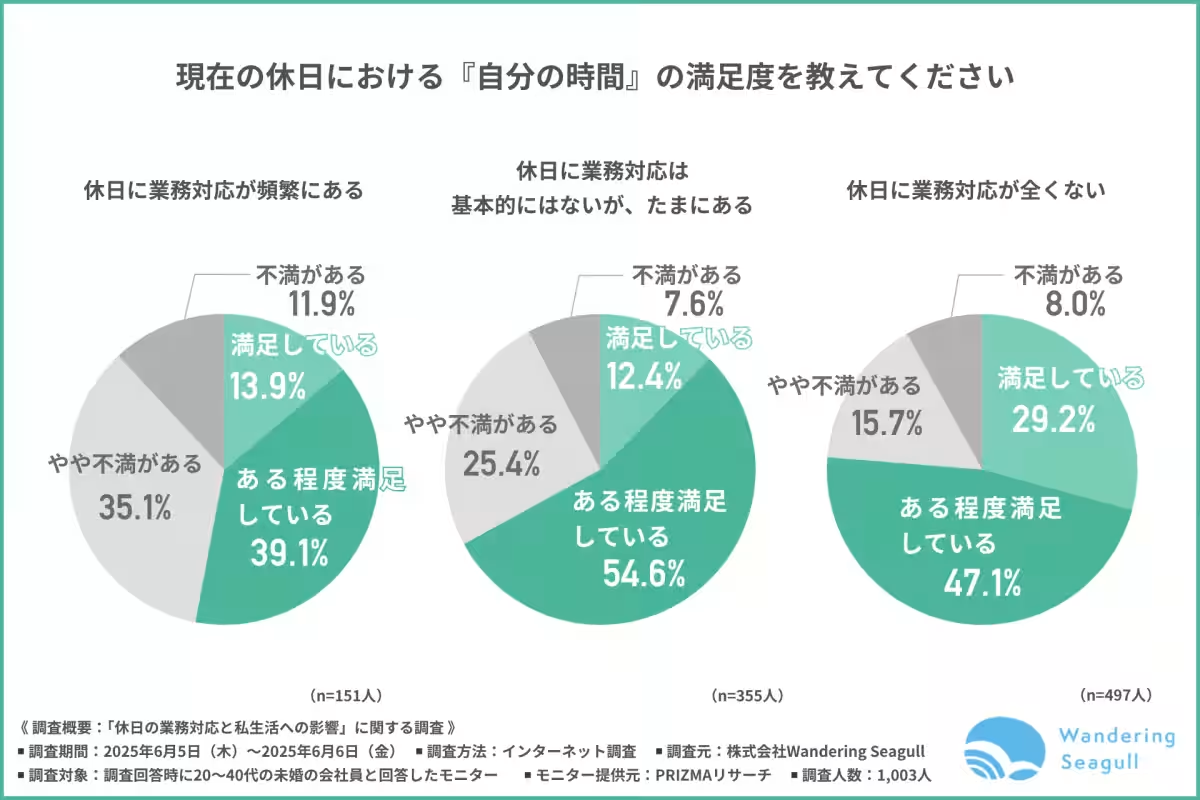
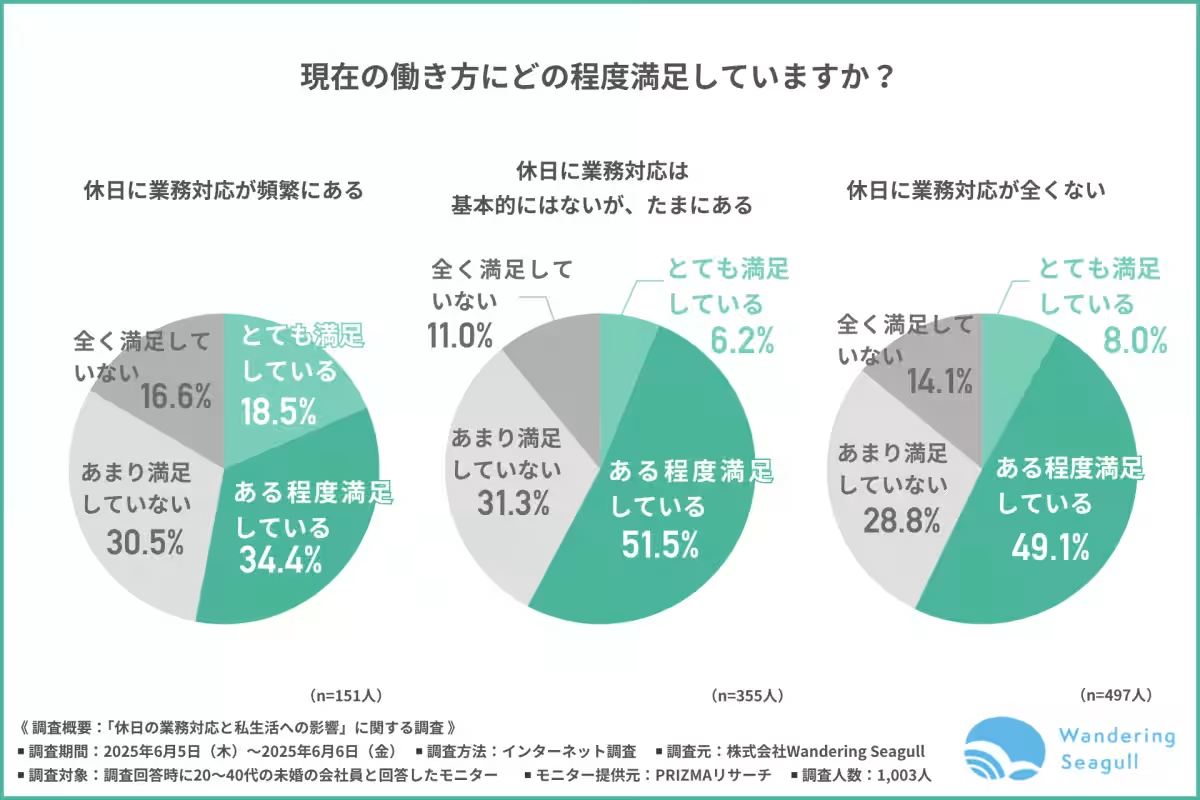
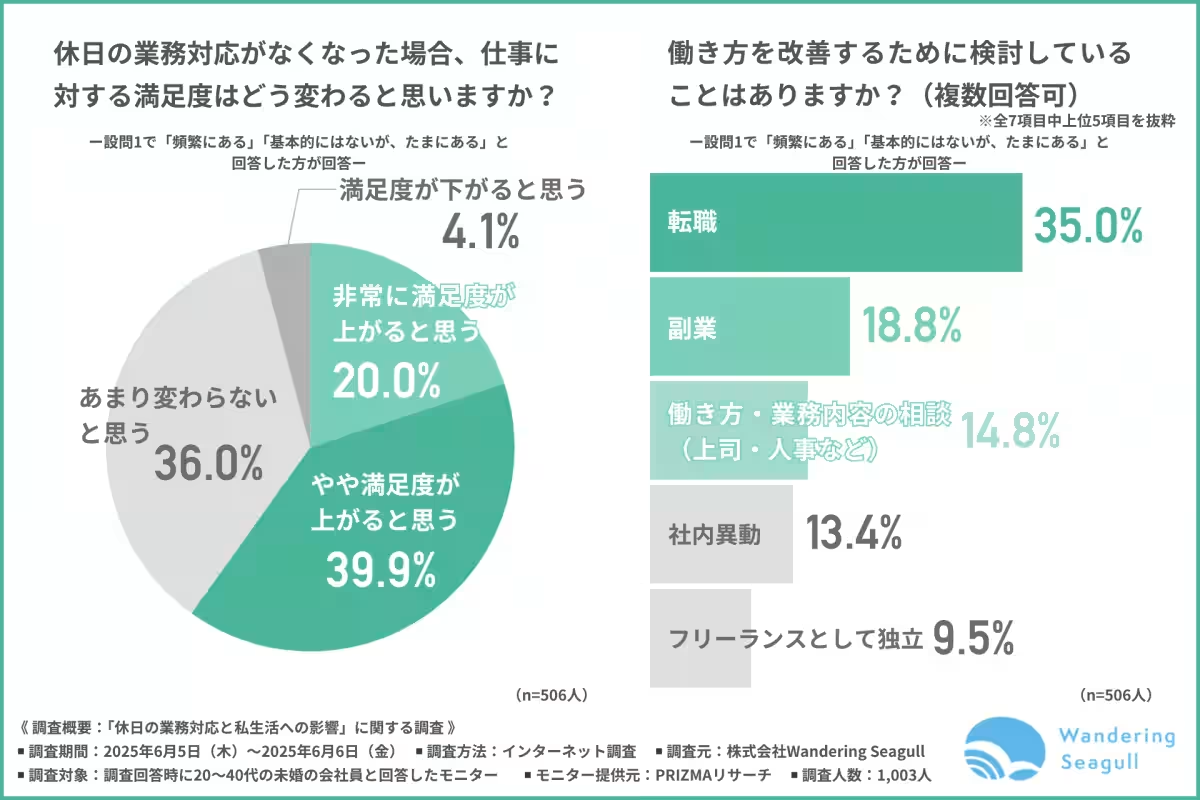

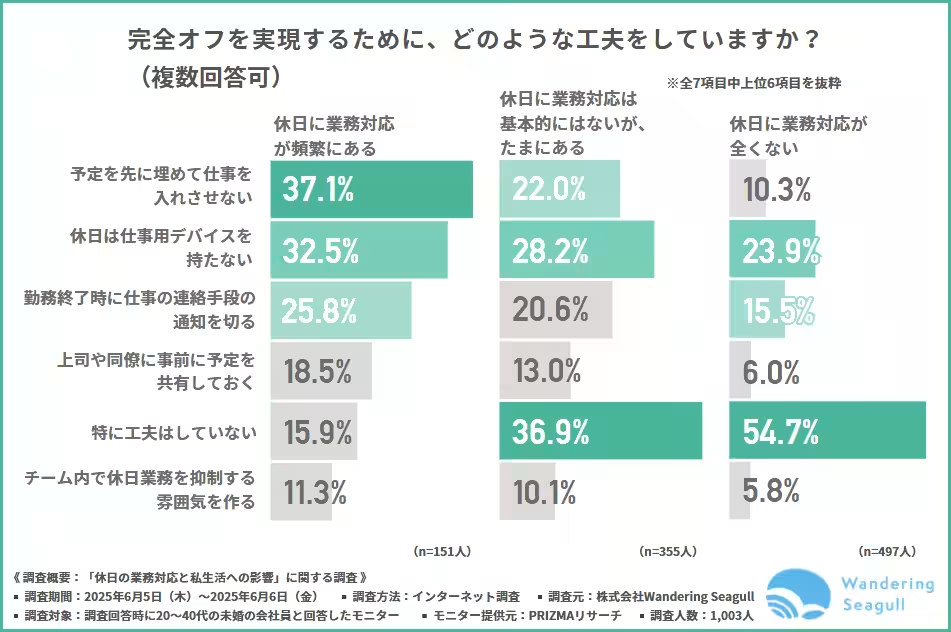
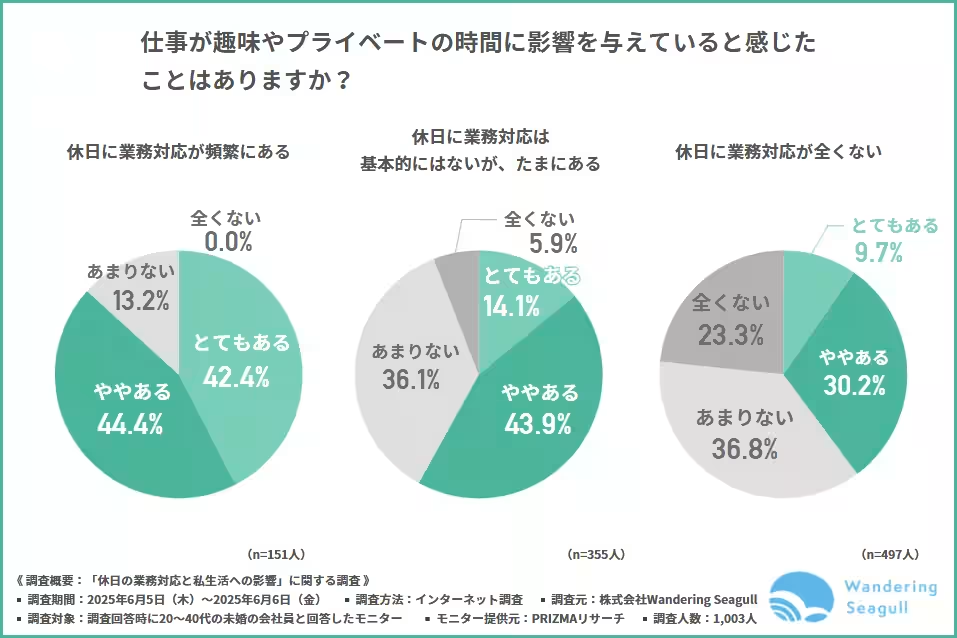
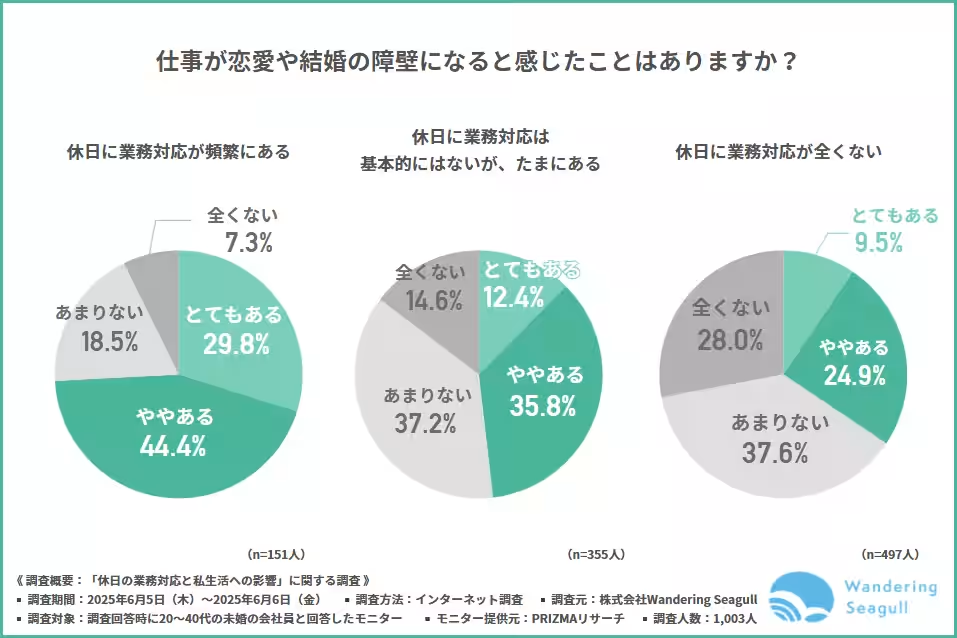
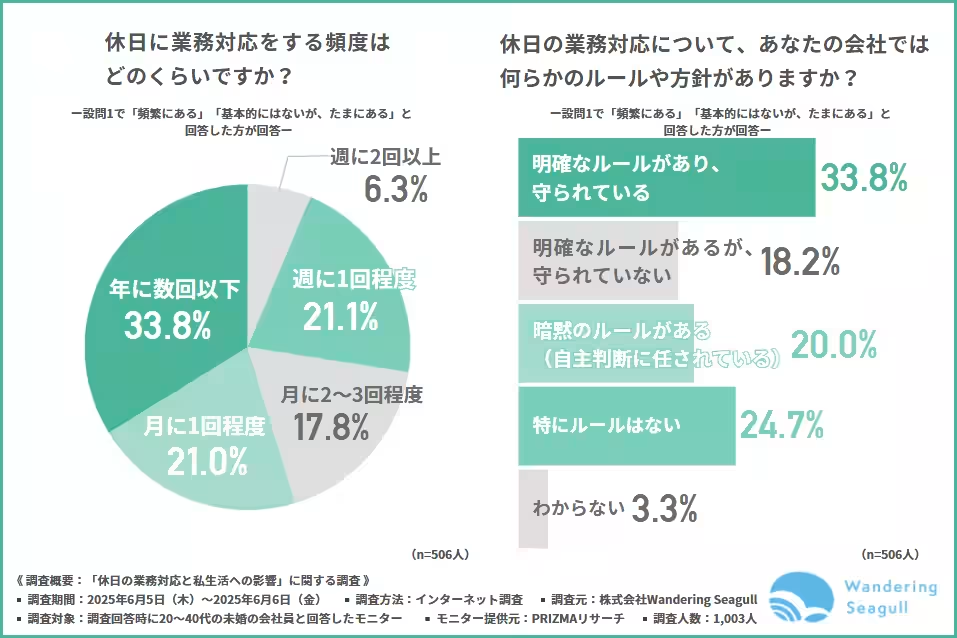
Topics People & Culture)










【About Using Articles】
You can freely use the title and article content by linking to the page where the article is posted.
※ Images cannot be used.
【About Links】
Links are free to use.